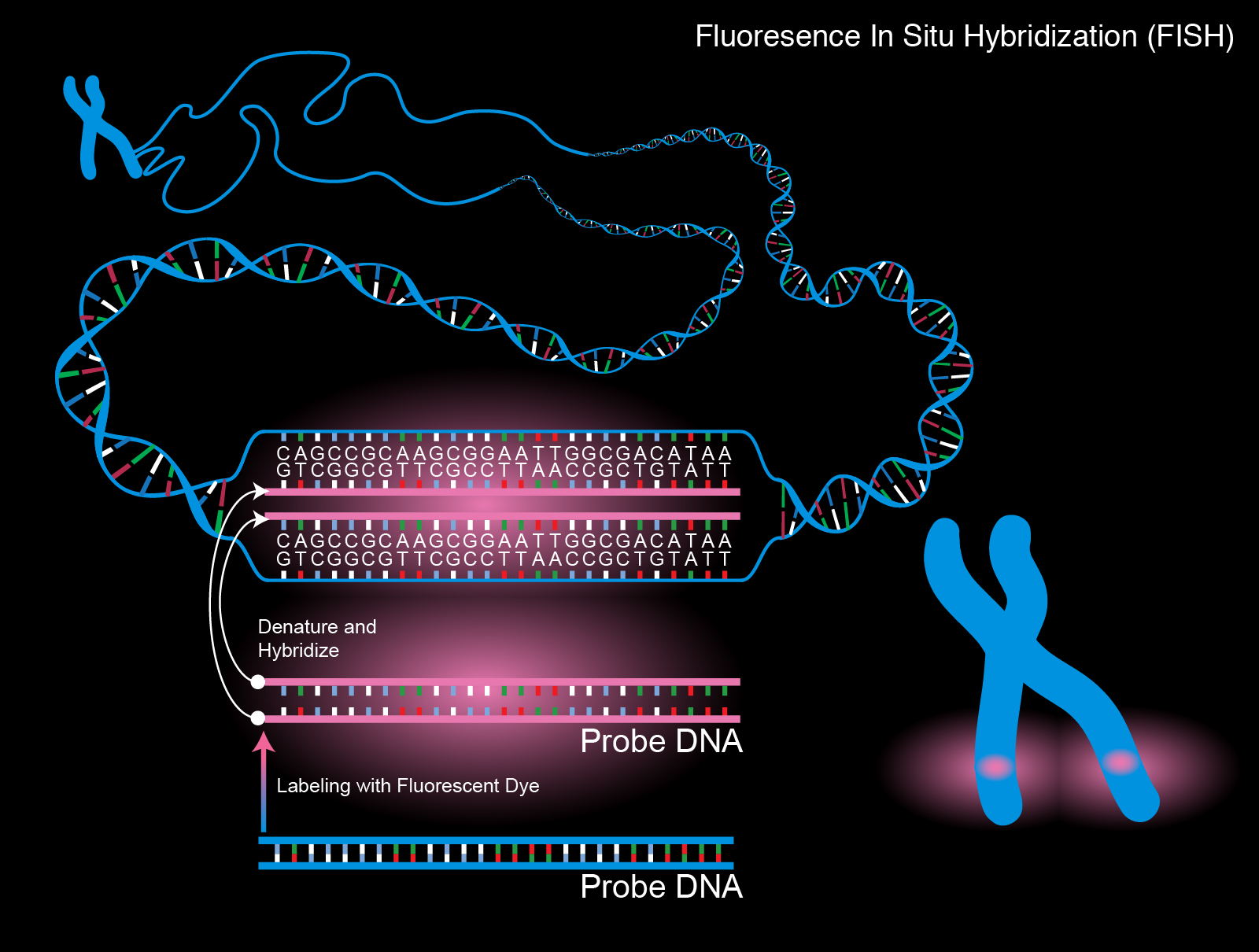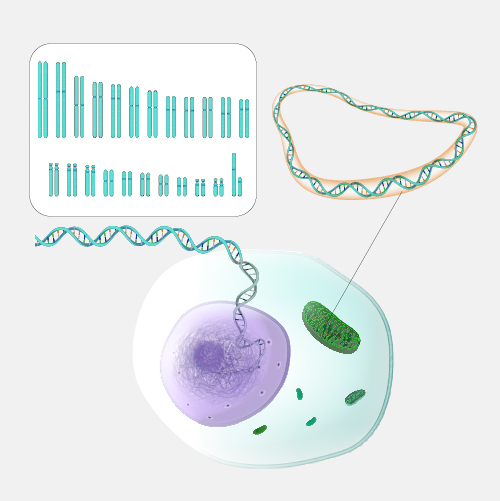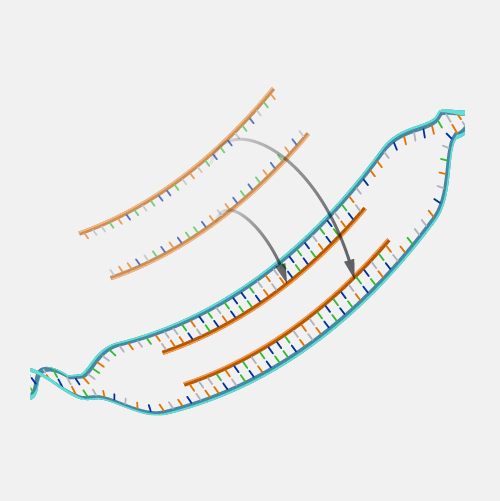Probe
Definition
A probe is a single-stranded sequence of DNA or RNA used to search for its complementary sequence in a sample genome. The probe is placed into contact with the sample under conditions that allow the probe sequence to hybridize with its complementary sequence. The probe is labeled with a radioactive or chemical tag that allows its binding to be visualized. In a similar way, labeled antibodies are used to probe a sample for the presence of a specific protein.

Narration
In doing genetics research, we often use something that we call probes. Probes are stretches of DNA or RNA that we've attached a label to. The label allows us to see where the DNA binds either in a cell, or in a chromosome, or even in pure isolated DNA. We label probes with different molecules to follow them. We can use radioactive material or fluorescent material to chemically attach it to a probe. And then we can use that probe to look for where certain mRNAs are expressed in a cell or in a tissue. We can also use probes to screen the genome to find out if there are extra copies, which often happens in cancers, or missing copies of certain parts of the genome, which happens in hereditary syndromes and in cancers.




